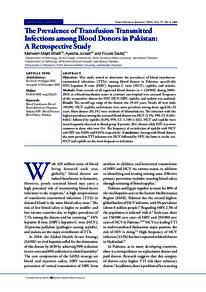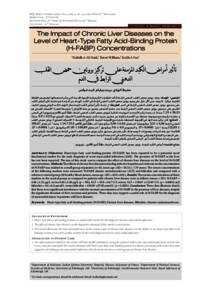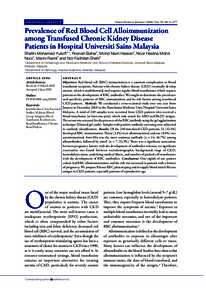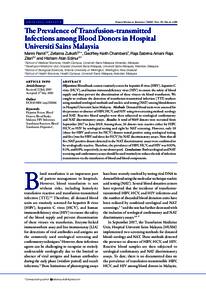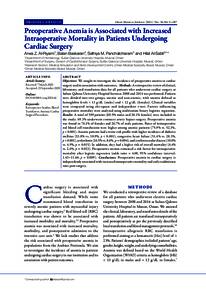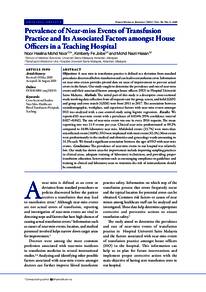Document
The Prevalence of transfusion transmitted infections among blood donors in Pakistan : a retrospective study.
Identifier
DOI 10.5001/omj.2022.65
Contributors
Junaid, Ayesha., Author
Sadiq, Fouzia., Author
Publisher
Oman Medical Specialty Board.
Gregorian
2022-05
Language
English
Subject
English abstract
Objectives: This study aimed to determine the prevalence of blood transfusiontransmitted infections (TTIs), among blood donors in Pakistan, specifically
HIV, hepatitis B virus (HBV), hepatitis C virus (HCV), syphilis, and malaria.
Methods: Data records of all registered blood donors (n = 120 968) during 2008–
2019, at a blood transfusion center in a tertiary care hospital were assessed. Frequency
of the seropositive donors for HIV, HCV, HBV, syphilis, and malaria was analyzed.
Results: The overall age range of the donors was 25–65 years. Nearly all were male
(99.0%). HCV, syphilis, and malaria were more prevalent among those aged 26–35
years. Most donors (81.1%) were residents of Islamabad city. The infection with the
highest prevalence among the screened blood donors was HCV (1.5%; 95% CI: 0.423–
0.661) followed by syphilis (0.8%; 95% CI: 1.149–1.432). HCV and syphilis were
most frequently observed in blood group B positive (B+) donors while HIV was more
common in those who were O+. The frequency of co-infection of syphilis with HCV
and HIV was 0.02% and 0.01%, respectively. Conclusions: Among male blood donors,
the most prevalent TTI infection was HCV followed by HIV; the latter is on the rise.
HCV and syphilis are the most frequent co-infections.
Member of
Resource URL
Category
Theses and Dissertations

